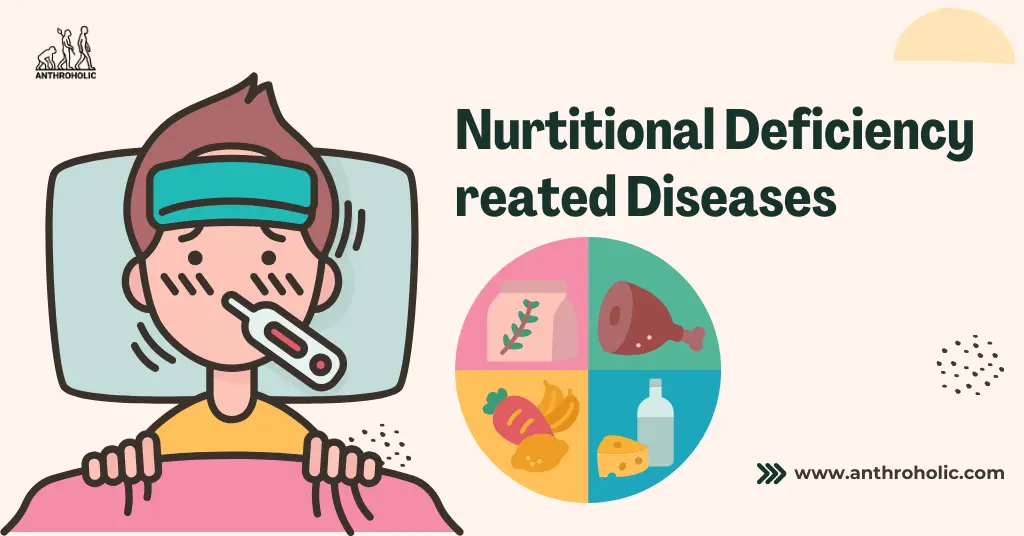AI Answer Evaluation Platform Live Now. Try Free Answer Evaluation Now
Nutritional Deficiency Related Diseases
Nutritional deficiencies, occurring when the body doesn’t receive enough essential nutrients, are a major global health concern impacting millions worldwide. Their prevalence, particularly in developing nations, highlights the critical role adequate nutrition plays in maintaining good health. This article explores the various types of nutritional deficiencies, their causes and consequences, and potential strategies for prevention and treatment.

Types of Nutritional Deficiencies
Nutritional deficiencies can be broadly categorized into two types: macronutrient and micronutrient deficiencies. Macronutrient deficiencies involve a lack of carbohydrates, proteins, or fats, which are crucial for energy production and overall body functions. Protein-energy malnutrition (PEM), with its subtypes kwashiorkor and marasmus, is a severe consequence of protein and calorie deficiencies, particularly affecting children. While deficiencies in carbohydrates and fats are less frequent, they can also contribute to various health issues.
Micronutrient deficiencies arise from a lack of essential vitamins and minerals needed in smaller quantities but play vital roles in specific bodily functions. Some of the most common and concerning micronutrient deficiencies include:
- Iron deficiency anemia: This condition, characterized by a lack of iron, which carries oxygen throughout the body, leads to fatigue, weakness, and decreased immunity.
- Vitamin A deficiency (xerophthalmia): Insufficient vitamin A intake can cause night blindness, dry eyes, and increase the risk of infections and vision loss.
- Vitamin D deficiency (rickets and osteomalacia): A lack of vitamin D, essential for calcium absorption, can cause bone deformities and softening in children (rickets) and adults (osteomalacia).
- Iodine deficiency disorders (IDDs): These encompass various health problems caused by inadequate iodine intake, including goiter, intellectual impairment, and birth defects.
Causes and Risk Factors
Several factors contribute to nutritional deficiencies. Dietary factors play a significant role, with limited access to diverse and nutritious foods, imbalanced diets, and insufficient intake of specific nutrient-rich foods being major contributors. Additionally, medical conditions affecting nutrient absorption and increased requirements during pregnancy and childhood can also lead to deficiencies.
Health Consequences
The consequences of nutritional deficiencies can be severe and far-reaching. In the short term, they can cause impaired growth and development, weakened immunity, fatigue, and cognitive decline. Long-term effects can include chronic diseases like heart disease and diabetes, vision problems, impaired reproductive health, and even increased mortality, particularly in children.
Prevention and Treatment
Combating nutritional deficiencies requires a multi-pronged approach. Dietary strategies are crucial, emphasizing a balanced diet rich in various food groups, fortification of staple foods with essential nutrients, and promoting dietary diversification through education programs. Additionally, targeted supplementation under healthcare supervision can play a role in addressing specific deficiencies.
Conclusion
Addressing nutritional deficiencies remains a critical challenge in the global fight for improved health. By implementing effective prevention strategies, including promoting healthy eating habits and ensuring access to nutritious foods, we can significantly reduce the burden of these debilitating diseases and pave the way for a healthier future for all. Remember, individual dietary choices and collective efforts towards promoting better nutrition are essential in our continuous fight to ensure optimal health for everyone.




